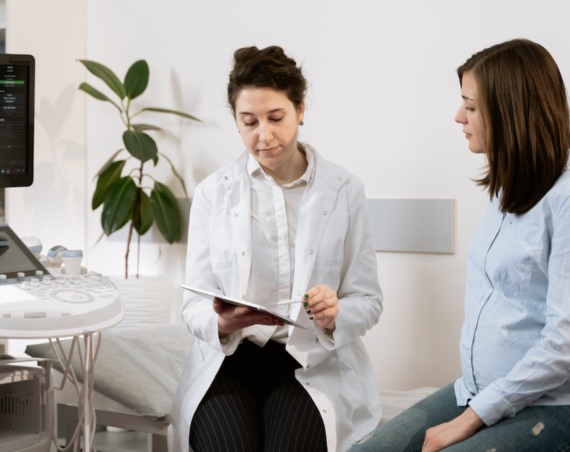In this series of women’s health reports the Global Women’s Health Innovation Conference 2024 in India presents the overview of the situation, the challenge, a pioneering study by Elda Health and the potential for global femtech innovators to address this challenge in India.

How big is the challenge of menopause health gap in India
India’s female population, exceeding 700 million, faces a growing yet overlooked challenge: menopause. By 2024, over 140 million women in India will likely experience menopause, typically between ages 45 and 55. Despite these numbers, awareness of menopausal health is critically low among women, girls, healthcare practitioners, and policymakers. This lack of awareness perpetuates the misconception that menopause is merely a natural phase, rather than a medical condition that requires attention.
A fragmented approach to menopause health
Cultural taboos around aging, menstruation, and reproductive health further compound the problem. Many Indian women, especially in rural areas, are reluctant to discuss menopausal symptoms with family members or healthcare providers.
Oftentimes the healthcare practitioners are not able to connect the dots, joining menopause-related complications such as heart disease, osteoporosis, or mental health concerns, to menopause.
As a result, comprehensive menopausal care—encompassing hormone therapy, mental health support, and lifestyle management—remains rare. Decision-makers and stakeholders within the healthcare system also overlook menopause, which is not prioritized in national health policies.
This leads to a fragmented approach to care, with few resources dedicated to understanding or managing menopause’s long-term effects, such as osteoporosis and cardiovascular risks, among Indian women. Without concerted efforts from policymakers, healthcare providers, and awareness campaigns, these gaps will continue to jeopardize the health of millions.
The key gaps are a lack of specialized services, insufficient training for healthcare workers, and limited public awareness campaigns. Addressing these gaps requires a multisectoral approach involving healthcare practitioners, policymakers, and the broader community to create culturally appropriate interventions that prioritize women’s menopausal health.
Menopause Research in India
There are three main variations when it comes to India vs global averages.
A paper by the Indian menopause society suggests that the onset of menopause is 46 years vs the global average of 51 years
This earlier onset means Indian women experience the metabolic effects of menopause sooner, including increased risks of cardiovascular disease, diabetes, osteoporosis, and even dementia. Preventive and proactive health management becomes even more crucial for Indian women in their 40s and beyond, focusing on lifestyle modifications, regular screenings, and appropriate interventions.
Higher risks of diabetes and metabolic syndrome in Indian women
India has the highest prevalence of diabetes in the world, with an estimated 80 million adults living with the condition. The risk of developing diabetes is significantly higher for Indian women, especially those with a family history of the disease. Additionally, the prevalence of metabolic syndrome, a cluster of conditions that increase the risk of heart disease, stroke, and diabetes, is also higher in India. This combination of factors highlights the urgent need for effective prevention and management strategies for Indian women.
Higher risks of osteoporosis
Earlier menopause, coupled with lower bone density and lack of exercise, significantly increases the risk of osteoporosis and fractures among Indian women. Promoting bone health awareness, encouraging weight-bearing exercises, and ensuring adequate calcium and vitamin D intake are crucial preventive measures. Early screening and timely treatment can mitigate the risk of debilitating fractures.
Elda Health, India’s leading femtech innovator has conducted a first-of-its-kind comprehensive study of over 25,000 women across India who were customers of Elda Health. These women, ranging in age from 35 to 60, represent a diverse cross-section of Indian society, including both urban and rural populations, various socioeconomic backgrounds, and different lifestyles.
Elda Health research findings serve as a valuable resource for healthcare providers, policymakers, and women themselves, helping to inform the development of tailored interventions and support systems to improve menopausal health in India.
In light of this pioneering study, Elda Health shares how India offers large scale opportunities in Menopause for femtech innovators
- Women’s health needs beyond puberty and pregnancy are largely underserved. This creates a significant opening for femtech innovators to address menstrual health, menopause, PCOS, and other conditions with tailored solutions.
- India’s rapidly growing digital infrastructure provides a unique opportunity for femtech to bypass traditional healthcare barriers and directly reach millions of women through mobile apps and telemedicine.
- Leverage data and AI to offer personalized health insights and interventions, addressing the unique needs of Indian women across diverse demographics and lifestyles.
“We wish to use the Elda Health study for improving the situation and farther the conversation. Our goal is to shift the narrative around menopause in India from silence and stigma to open dialogue and proactive management. Our vision is to utilise our understanding to Spark Conversations, debunk myths surrounding hormone replacement therapy, prioritize Mental Health and promote healthier lifestyles for women”, says Dr. Ameya Kulkarni Kanakiya, Co-founder of Elda Health.




